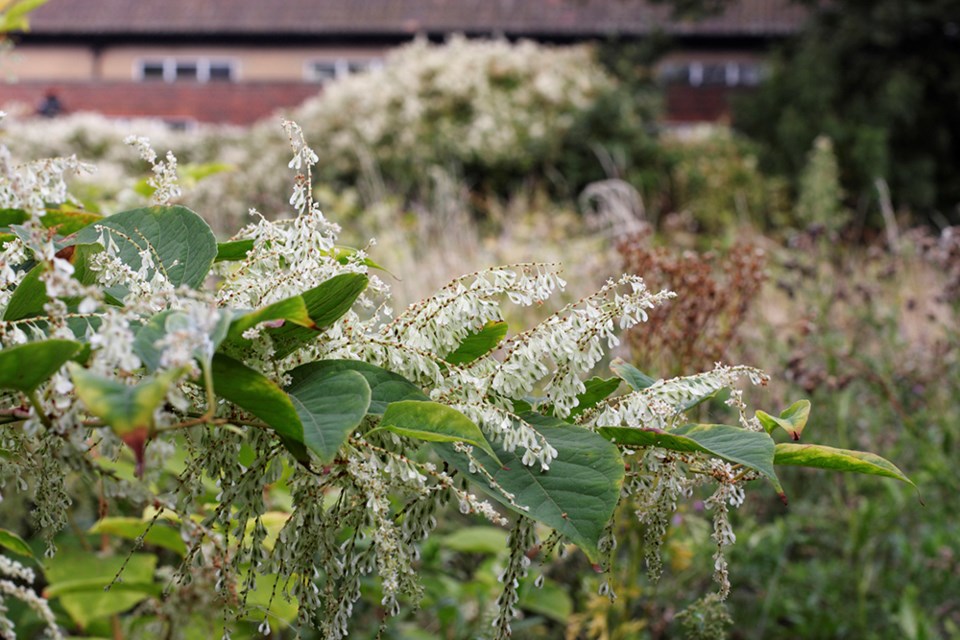qathet Regional District (qRD) will consider including $14,500 in the 2022 solid waste management service budget for initiatives outlined in the invasive plant species disposal plan.
At the January 13 committee of the whole meeting, directors considered the recommendation, which will help stop their spread, protect and preserve native ecosystems, while also reducing risks to human health and properties. If left unchecked, illegal dumping of this material will persist, a staff report stated.
Electoral Area E director Andrew Fall asked if the recommendation changes the regional district’s current practices.
Manager of operational services Patrick Devereaux said the recommendation expands how the regional district is dealing with invasive plants and formalizes the process a little more. He said the funding allocation would increase the advertising budget so the regional district can work at getting rid of invasive species for good.
The concentration of effort is within City of Powell River and electoral areas A, B and C, said Devereaux. He said there are hopes to get to Texada Island (Area D) as well, but there is not yet a plan for Lasqueti Island (Area E).
Devereaux said with regular barge service to the island transporting waste and recyclables, it is a possibility to add a drop-off for Lasqueti into the plan.
Electoral Area C director Clay Brander said he understands that in the past, invasive species were dealt with at the Catalyst Paper Tis’kwat mill in the hog fuel. He asked, as a result, if there was anticipation of an increase in use of the regional district’s burn box.
Devereaux said that will be the preferred method of elimination because the mill option is no longer available.
The committee voted to recommend the $14,500 expenditure to the regional board.
According to a staff report, an invasive plant strategy was adopted by the regional board in January 2017. It establishes a framework for a collaborative approach to reducing and eradicating invasive plants, the report stated.
qRD has been providing a free invasive plant species drop-off month each May. In 2020, there were 7.6 tonnes of plant material collected, and in 2021, the figure was 15.6 tonnes.
The report stated that invasive plant species pose a serious threat to the region through reducing biodiversity and negatively impacting ecological health.
“A proper disposal plan is a critical component to reducing the spread of plants through mismanagement and illegal dumping,” the report stated, “and is a proactive measure to conserve and protect the natural environment.”



